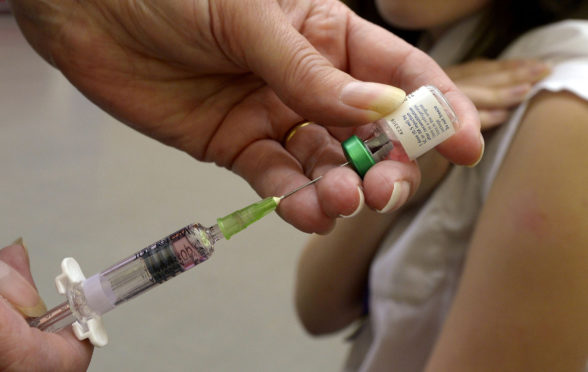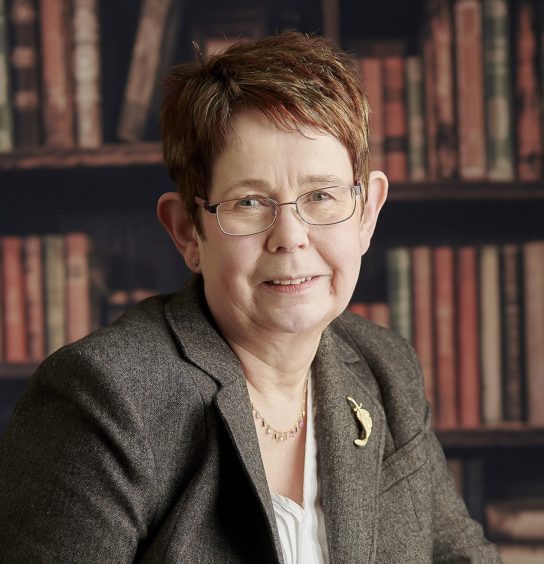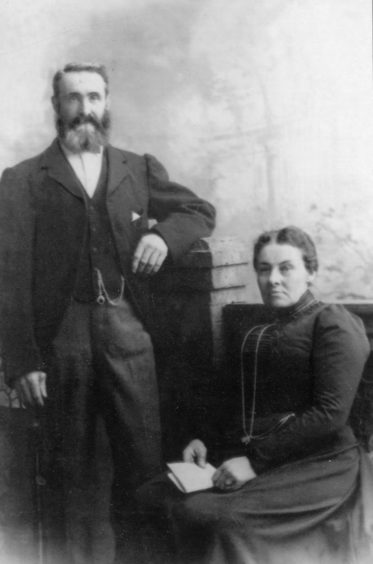Dundee University research has uncovered evidence blasting the myth of vaccine hesitancy being a modern phenomenon in Scotland.
The growing ‘anti-vaxx’ movement has now been ranked alongside antimicrobial resistance and climate change within the top 10 global health threats according to the World Health Organisation, with a 30% increase in measles cases being reported worldwide and a number of countries – including the UK – no longer being considered free of the disease.
Discredited studies, social media and celebrity doubts have been blamed for falling take-up rates, but Dundee University PhD student Sylvia Valentine has found evidence suggesting Scottish scepticism existed more than 150 years ago.
She has found a city centre vegetarian café was the hub of the Dundee’s opposition campaign activities in the late 1800s.
The history of the English anti-vaccination movement – dating back to the medical establishment and clergy introduction’s opposition to smallpox inoculation in 1721 – has been well documented, but until recently it was largely assumed that there was no parallel campaign in Scotland.
“My work builds on that of other researchers and shows how opposition to compulsory vaccination was not confined to England,” said Sylvia, a student in the university’s School of Humanities.
“Compulsory smallpox vaccination took effect in Scotland from 1864, with widespread anti-vaccination sentiment taking hold within a few decades.
“Myriad factors, including nationalism, vegetarianism, religious doctrine and the defence of civil liberties helped galvanise the movement and bring anti-vaccinators from disparate backgrounds together.
“While modern technology enables the ability to connect with a global audience and MMR is the main targets of the movement today, the aims, beliefs and objections of the 21st century anti-vaccinators share many parallels with their Victorian and Edwardian forebears.”
The lobbying efforts of anti-vaccinators, coupled with the scale of non-compliance in England, eventually led to a Royal Commission into vaccination being established.
The law did not extend to Scotland, however, Sylvia said the omission acted as a “call to arms for Scottish anti-vaccinators whose efforts had been haphazard up to that point.”
“The Scottish Anti-Vaccination League was formed in early 1896 to coordinate lobbying activities and provide legal advice and support to those prosecuted for non-vaccination.”
She has uncovered reports of speaking tours by leading anti-vaccination campaigners that encouraged Scots to challenge candidates for election to public office about their attitudes to compulsory vaccination.
Contemporary newspaper accounts from 1896 onwards confirmed hustings which drew folk from all walks of life.
“Many anti-vaccinators were vegetarians, supporters of the temperance movement or held non-conformist religious beliefs,” said Sylvia.
“The secretary of the Scottish Anti-Vaccination League was a vegetarian who deemed the use of calf lymph for vaccination unacceptable. It is notable that the Dundee Anti-Vaccination Society held meetings at the Vegetarian Café on the city’s High Street in the late 1890s.”
“Religion also drove the movement. The Swedenborgian, or New Church established churches in both England and Scotland, often located in anti-vaccination hot spots.
“Swedenborgians believed the purity of human blood should never be contaminated by animal matter and one minister, who spoke at a number of anti-vaccination meetings in Scotland, was prosecuted no less than four times for refusing to have his children vaccinated.”
1880s court report reveals smallpox ‘felon’
In March 1888, a Glaswegian joiner called Duncan McCorkindale wrote to a city newspaper to complain that it had not covered a recent court case that led to his imprisonment.
While most would welcome a lack of media interest in their brush with the law, McCorkindale wanted to raise awareness of his plight.
After refusing to have his child vaccinated against smallpox, then a criminal offence, he had been fined 10 shillings and ordered to pay £1 legal costs.
Lacking the means to do so, McCorkindale “had to go to prison, to be treated like a felon – no distinction being made between a respectable citizen and thieves and housebreakers”.
McCorkindale explained that the death of one of his older children a few days after being inoculated was his motivation for refusal to comply with the 1863 Scottish Vaccination Act.
A few months before McCorkindale’s imprisonment, another sceptical parent, Robert Barr, had been prosecuted for the same offence.
As a man of means, Barr avoided jail by paying the fine McCorkindale was unable to afford and anti-vaccinators made great play of the fact that the law penalised ordinary working Scots who had no right to plead that vaccination was a matter of conscience.
By 1907, a further Parliamentary Act was required to clarify the legislation regarding conscientious objection. A bill was introduced which ensured the new act also applied in Scotland.
Vaccination rates in Scotland plummeted from a high level of compliance of around 95% in the late 1860s to below 40% by 1918.












